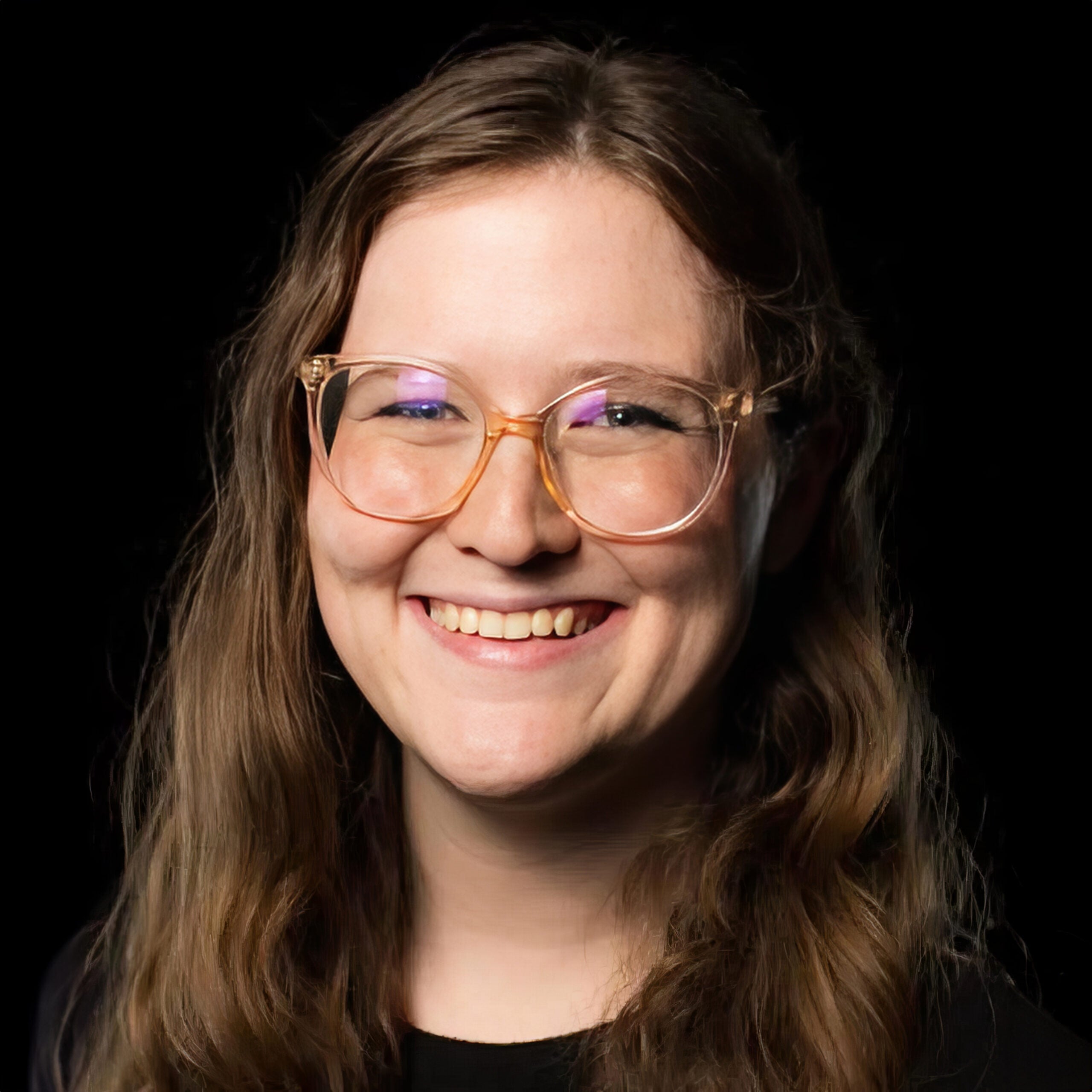Carrie Sullivan ’25, Music Therapy and Spanish, enters her senior year in the arts and sciences college with bright prospects. Carrie’s experience exemplifies the world-opening opportunities in and outside the classroom. After graduation in the spring, she plans to advocate for music therapy at home by pushing for state licensure in Massachusetts and working with local Spanish-speaking community members.
Major and year of graduation
Music Therapy and Spanish, 2025
Why URI?
I knew I wanted to study Music Therapy, and when I was researching schools I saw an article about a new program beginning at URI. Reading that article, it automatically made sense. I am proud to say that URI has the first Music Therapy major at a public university in New England, and that I got to take a part in growing and shaping it. What made it even clearer was sitting down at my audition for the program with our director Nicole O’ Malley. I remember her asking me, “What lights your fire? What is it that really motivates you?” and I knew that this was where I wanted to be.
What has been your experience with in-classroom learning for both of your majors?
I started school in 2020, which definitely shaped my experience. The Department of Music was really wonderful in having creative solutions to not being able to have typical classes. I took guitar and concert choir outside in a tent so that we could still make music together. Carrying that kind of adaptability definitely helped me in all of my schooling. Having practical experiences be at the center of my classes was really essential in shaping my URI experience.
This was true in my Spanish classes as well. I got the opportunity to take bachata classes, watch theater performances, read novels, discuss politics, and get a really comprehensive view of the language that was applied to real-life conversations I might have.
When did you realize there was a direct correlation between your majors? Did you enter college knowing this or was it something you discover along the way?
I actually didn’t come to URI intending to be a Spanish major. I started taking Spanish classes because I wanted to continue improving my language skills after high school. I enjoyed it so much, I just kept taking classes until my music advisor prompted me to look at the requirements for the major. Once I realized it was possible, my world opened up. The connection to me seemed so innate, whether it was learning about Latin American music in my Spanish classes and then having a new song to use in a music therapy session, or learning about articulation when working on speech goals in music therapy and then working on the phonetic alphabet in a linguistics class. It was wonderful to be able to put that into practice.
What has been your experience outside of the classroom? E.g, the student fellowship program, your internship, etc.
Our Music Therapy program is really wonderful in that it promotes clinical experience as early as sophomore year. I have had the opportunity to observe and lead sessions in local school districts, in the psychiatric ward at Rhode Island Hospital, and in Early Intervention. Having such varied experience helps me to feel prepared for the field and assured in what I want to do. This summer, I also had the opportunity to travel to Costa Rica to study abroad. There, I immersed myself by taking guitar lessons in Spanish and taking a conversation class which led me to participate in a local street cleanup and volunteer at a day program for elderly adults.
Most recently, I conducted research with the Department of Languages on supporting neurodivergent students in language classrooms. I developed a website with a toolkit for educators to help them find resources and become advocates. Currently, I am in my internship at South Shore Educational Collaborative, where I work with students with disabilities and behavioral needs and use music to help them achieve their goals in speech, movement, socialization, emotion, and attention.
Are there professors that stand out to you that have influenced your career at URI?
I have to give a shout out to Olaia O’Malley-Gorbea, my music therapy clinical supervisor who first challenged me to use clinical skills in Spanish and paved the way for me to be able to conduct bilingual music therapy sessions. She wanted me to be able to truly apply my knowledge, and has taught me so much about being a culturally competent future therapist.
What are your aspirations for the time you have left at URI?
I am looking forward to obtaining my board certification in Music Therapy at the end of this academic year. I would also love an opportunity to conduct more research, specifically in the linguistic-musical connection or in neurodiversity and advocacy.
What are your goals post-graduation?
After receiving my certification, the opportunity to conduct clinical research and demonstrate the efficacy of music therapy in neurodivergent populations would be incredible. I plan to advocate for music therapy at home by pushing for state licensure in Massachusetts and working with local Spanish-speaking community members. I also would love another opportunity to travel to Latin America and make music there.
What would you tell freshman-year Carrie?
I would tell freshman-year Carrie to trust herself and her skills. Don’t be afraid to approach someone with your ideas and goals, they are valuable and people want to support you in making them happen.

